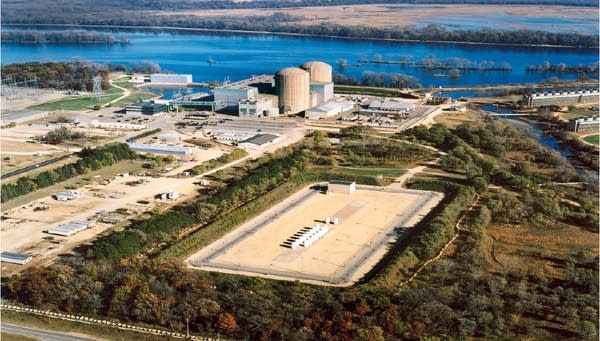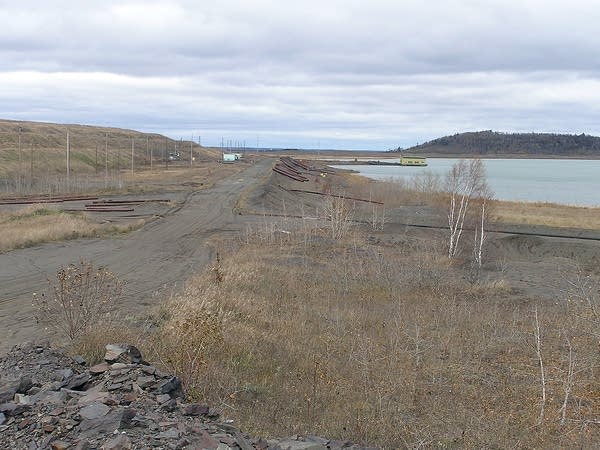Gov candidates face array of environmental issues
Go Deeper.
Create an account or log in to save stories.
Like this?
Thanks for liking this story! We have added it to a list of your favorite stories.

Minnesota's looming budget deficit is at the top of many voter's minds this election season, but the environment has always been close to people's hearts.
From fishing to farming, mining to prairie preservation - Minnesota's next governor will face a wide range of environmental concerns.
Voters will expect whoever wins this year's gubernatorial election to tackle some big issues.
ALTERNATIVE AND NUCLEAR ENERGY
Turn Up Your Support
MPR News helps you turn down the noise and build shared understanding. Turn up your support for this public resource and keep trusted journalism accessible to all.
Minnesota has ambitious goals to reduce its output of greenhouse gases, even as the cost of energy continues to climb. The three candidates for governor offer different ways to deal with these twin challenges.
DFLer Mark Dayton wants the state to move toward a lower-carbon economy. Dayton plans to issue bonds to pay for energy projects in public buildings.
"A revolving loan fund that would fund these projects, starting with the state colleges and universities," Dayton said.
As the loans are paid back, the money would be available for new projects.
"In a decade we could transform the energy use by the public sector of Minnesota, and establish alternative energy industries for our state," he said.
Dayton said successful projects would pay for themselves in five-to-seven years. That's pretty optimistic; for some projects, it takes far longer to recoup the investment.

The Independence Party's Tom Horner said he's concerned that Minnesota businesses are falling behind those in Europe and China, where lots of new energy technologies are reaching the market.
"That's why I'm the only one of the three candidates to have recommended new money in my budget for basic and applied research at our two- and four-year schools, and certainly I would hope that some of that new money would go into innovation around new energy technologies," Horner said.
For Republican Tom Emmer, that sort of investment is unnecessary.
"There is a marketplace, always, to move toward less carbon-intensive fuels, but I don't think government needs to mandate those sorts of things," he said. "I think that's something that happens within the marketplace."
Emmer wants the government to step aside from most economic activity, including nuclear power plants. He said the state's moratorium on new nuclear plants should end.
Horner wants to lift the moratorium, but not necessarily to build a plant right away. He said the current ban gives people an excuse to avoid talking about nuclear energy. He said it's important to talk about it because the federal government needs to feel pressure to find a place to dispose of nuclear waste.
The waste problem is at the top of Dayton's mind; he said Minnesota should leave the moratorium in place until there is a permanent repository.
POLYMET AND COPPER-NICKEL MINING
One of the most difficult environmental issues confronting the state is the plethora of proposals for a new kind of mining in northeastern Minnesota: copper-nickel mining. Critics say this type of mining has never been done anywhere in the world without significant pollution of nearby waters.
The Minnesota Department of Natural Resources and the U.S. Army Corps of Engineers are overseeing an environmental review for the proposed Polymet mine. The study -- so far -- has taken more than four years. When it was released last fall, it was panned by the U.S. Environmental Protection Agency as inadequate.
Emmer said the review has no reason to take so long.

"I understand the complication, but four years is too long; nothing is that complicated when you're talking about putting Minnesotans back to work," he said.
Emmer said Minnesota's economy is based on resource use, and the state should make it easier to get permits.
Horner agrees; he said the EPA should back off on its criticism of the Polymet study.
"The EPA and others need to trust the expertise of Minnesotans. We have a good process; we bring in expert people to do it," Horner said.
Dayton, approves of the review process, but he points out it's not finished yet. He said there's usually a way to protect the environment and create jobs at the same time. And he said if a way can be found for the Polymet project, it should go ahead.
CUTS TO THE DNR AND MPCA
The DNR and the Minnesota Pollution Control Agency have been hit by budget cuts in the past few years. Horner and Dayton said some of those cuts have been short-sighted. Horner said invasive species and other new threats call for more, and better-trained, DNR conservation officers.
"If we're really concerned about the quality of our lakes, then we'd better staff, at full complement, our conservation officers," he said. "We're not doing that."
Emmer said Minnesota has some of the strictest environmental laws in the nation, and he said the state may not be getting its money's worth from the laws or the agencies that enforce them.
"We should always strive for cleaner water, but our water today, and it's time for people to start acknowledging this, is cleaner than it was in the 70s," Emmer said.
Of course, older types of pollution have been cleaned up, but currently about 40 percent of Minnesota's waters are considered impaired for swimming, fishing, or other functions.
POLLUTION FROM AGRICULTURE
On the issue of pollution from agriculture, which contributes to dead zones in the Gulf of Mexico and Lake Winnipeg, Emmer and Horner say farmers are good conservationists who don't require further regulation. Dayton takes a more nuanced view. He said farmers want to be good conservationists, but they're often hamstrung by federal farm policy that pushes production.
"They're individual small-business owners-operators who are struggling in a larger economic environment that tries to keep prices down so profits can be made through the processing and the retailing and the like of their endeavors," he said.
Dayton said he tried to influence federal farm policy in the Senate, but much more change is needed.
All three men said Minnesota's rules, regulations, and government structures should be revamped to make them more user-friendly and cost-effective.





